
Sign in
Don't have an account with us? Sign up using the form below and get some free bonuses!

Many people think of spanking, also known as corporal punishment, as being an "old fashioned" way for parents to discipline their children. Perhaps surprisingly, however, it's still much more common than many realize.
Despite guidance against corporal punishment from the American Academy of Pediatrics, half of parents in the United States have used spanking to address perceived behavior problems within the past year. One-third have used corporal punishment within the past week (source). Rather than being an outdated form of physical discipline, it seems to be alive and well.
What's going on? Doesn't "discipline" mean to teach, and isn't teaching supposed to be benevolent?
Before I say anything further, I want you to know this: if you use spanking as a form of discipline for your kids, I'm not here to judge you. I'm here to help you find another way, with your consent. If you need to, take time to process this information. Spanking can legitimately be a hard habit to break.
My goal isn't to shame you, but to show you a path forward, if you're willing. I acknowledge that almost all parents truly and deeply love their children.
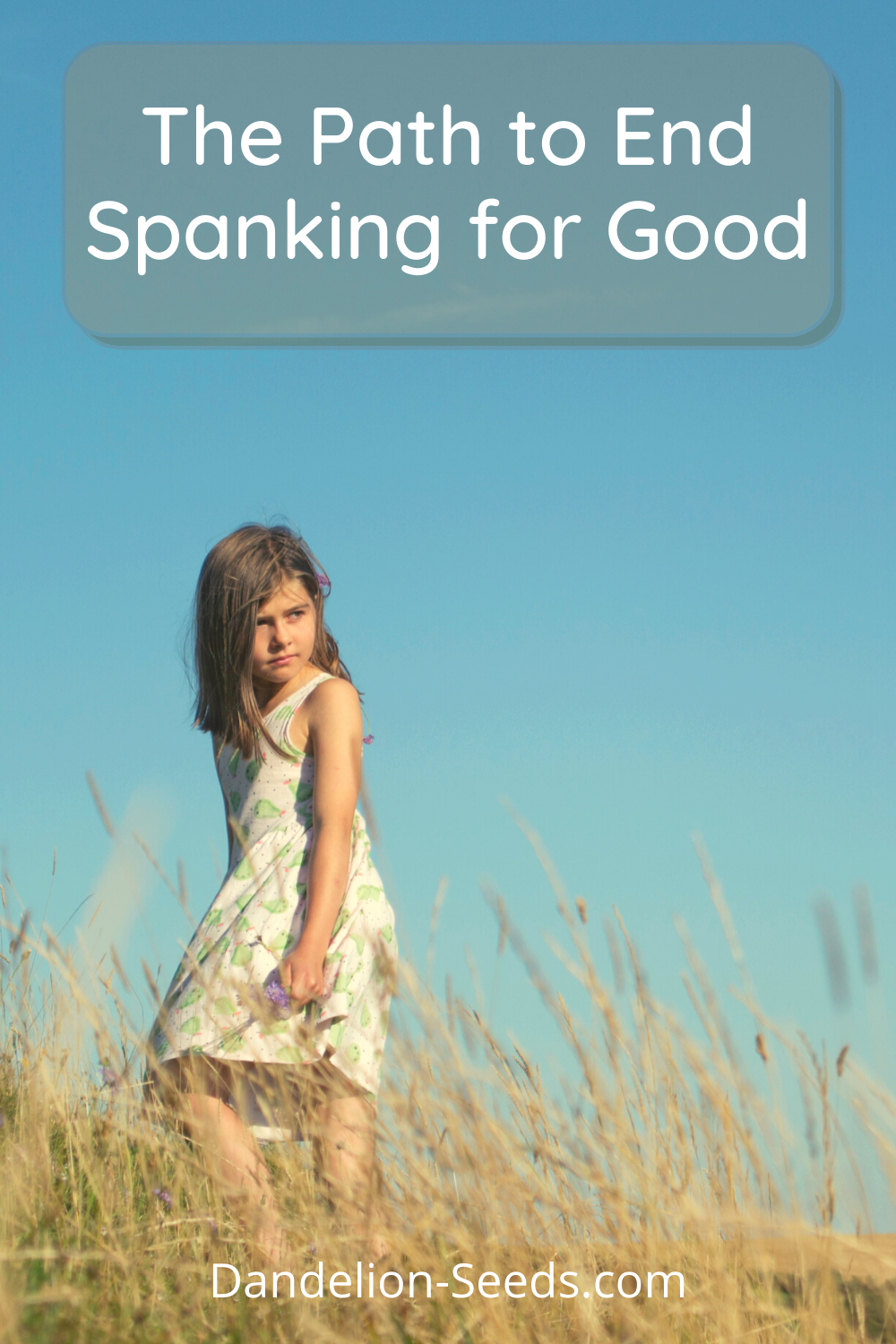
This article covers why people spank their children -- and what to do about it.
For some parents, spanking was one of the consequences they endured as children. As with many patterns they learned in childhood, they simply didn't learn another way. Perhaps they rarely experienced positive reinforcement, connection-based parenting, and discipline strategies that are in line with what we now know best supports child development.
More compelling, perhaps, is that they believe spanking "works." After all, it can change behavior. Isn't changed behavior what we want?
In The Body Keeps the Score (afflinks), Bessel van der Kolk discusses the role of intergenerational trauma on the patterns and choices we make in our own lives. Some of these patterns "show up" without much conscious effort on our part; we simply do what we do because it's what our brains have learned to do as an automatic or near-automatic response.
Change and healing are possible, however.
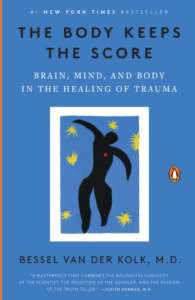
The tricky part is that the adult children who were spanked by their parents when they were little, still craved connection with their parents despite the spankings. They're hardwired to stick up for their parents because, in addition being the source of spanking, those same parents also took care of them and likely truly loved them.
By virtue of being raised by the person who spanked them and wanting an ongoing connection, they often justify the adult's behavior. Perhaps now, as an adult themselves, they say spanking taught them something useful, or believe that they somehow deserved physical punishment.
They may believe that, at least some of the time, they were too "naughty" for anything less than spanking. Further, they may believe that the world is tough, so it's important to have been "toughened up" by their parents -- and they hold onto that belief for their children.
Indeed, it can be confusing for a growing child's nervous system to be both hurt and protected by the same person. Among other consequences, it can result in what's called an insecure attachment (source); in more extreme cases, it can cause trauma bonding (source). The child will work to "close the gap" and be more connected to those they love, even if there's a steep price for that connection (source 1, source 2).
In short, they're willing to look away from the short- and long-term pain that corporal punishment caused in order to emotionally save the relationship, no matter the impact on their sense of self-worth as a child.
Additionally, many parents feel awful after spanking their children. It's a no-win situation, but they often feel they have no choice.
Research shows that when parents work to make sense of their own childhood, otherwise known as their attachment history -- and form what's called a coherent narrative around it -- they can better separate the behavior of their own parents from the behavior they want to model with their children. A coherent narrative simply means the ability to tell a story that makes sense (here's how it works).
Although forming a coherent narrative can reach far beyond spanking (or, alternatively, not include corporal punishment all), it certainly can be part of the healing process for people who've endured corporal punishment. They can learn that spanking is not the only way, and that healing is possible for them and for their children.
Fortunately for the relationship, adults who choose to give up spanking don't necessarily have to vilify their own caregivers in the process. With empathy, they can separate the act of having been spanked from the human they loved who inflicted the action. They can separate the painful parts of their upbringing from the joyful ones, and not holistically judge their caregivers' discipline strategies as a reflection of the relationship overall.
Part of this work may include what's referred to as "re-parenting" themselves. That entails finding gentleness and compassion for their inner child. It can involve seeing their younger self as worthy of love and support despite the circumstances. It embraces that child as having done the best they could with the emotional tools they had at the time. It's a softening themselves to receive unconditional love.
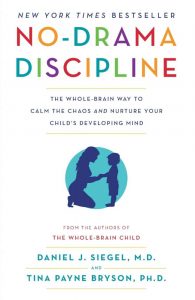
Indeed, when adults who were spanked do this work, it can sometimes make waves between their parents and them. It may cause resentment; it may bring up pain from childhood. Adults recovering from corporal punishment often benefit from receiving professional support. They may be able to find ways to love their own parents as much as they ever did, yet have a healthier mental framework around the discipline that was used when they were little.
Choosing a new path does not have to mean a permanent rupture in the family. Healing is absolutely possible.
With that support, parents can decide that their history does not necessarily need to become their destiny with their own children. They can choose a new parenting path without being untrue to their roots unless they consciously choose to depart from them. They can, in fact, view their "roots" as still being intact, but choose to grow their parenting choices along a new branch of the same otherwise loving tree.
Some parents may be triggered by what they perceive as their child's attention-seeking behavior and not realizing that every behavior, even suboptimal behavior, is simply the child's best attempt to connect with them. They may not understand that even when, behaviorally, it looks nothing like a "best" attempt, the child is simply doing what they can -- even if to get negative attention.
With the best of underlying intentions, kids will do almost anything to help their parents "see" them.
Furthermore, some adults are of the opinion that whenever "nothing else works" to address their kids' behavior, their only option is to become more harsh rather than more gentle. It's a novel idea to them that the most direct way to lead a child, and naturally engage them in cooperative behavior, is through connection. It can seem counterintuitive especially when they're mad. Why would they want to "reward" misbehavior?
Sometimes, this belief system stems from the idea that children aren't "whole" or worthy of respect until they're older; that they must earn respect by learning and living up to adults' ideals.
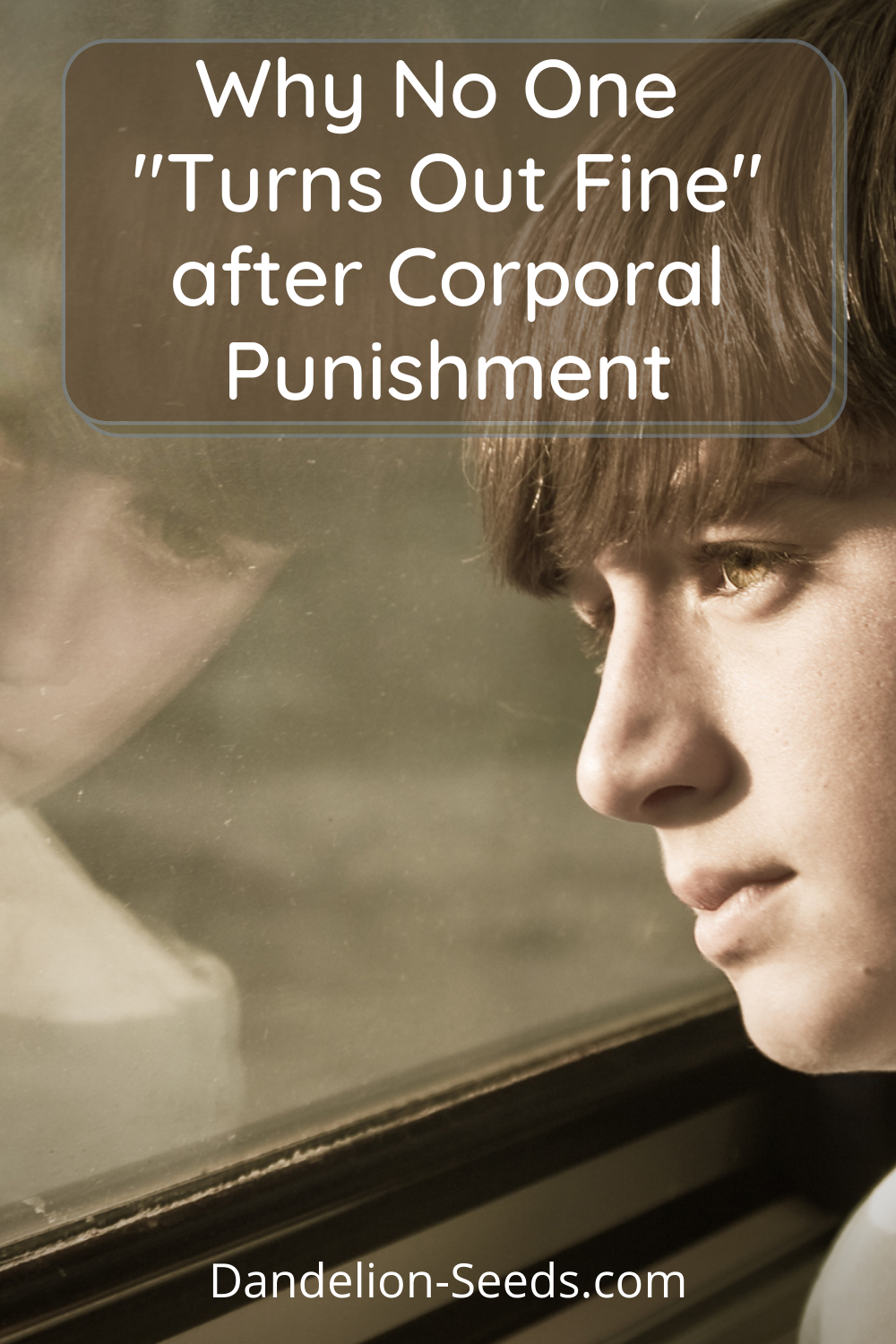
It can be an incredible paradigm shift for parents to see their children as being inherently worthy of respect. When this is their point of view, it's often, once again, linked to beliefs from their family of origin. It can be beneficial to consider questions like these:
As for the belief that "nothing else besides spanking works," it's worth exploring whether the parent has genuinely attempted connection-based positive parenting approaches. Many children thrive and cooperate best with playful parenting, for example. Other children need other tools and guidance, such as storytelling and more time in "time-in" rather than "time-out" to co-regulate.
Despite what some people think, consequences do exist in peaceful parenting. The difference is that, while still being effective, these consequences do no harm.
Physical punishment, including spanking, does not need to be anywhere in the picture; it is not a "last resort" and doesn't have to be. There's always another, gentler option.
See all positive parenting courses here
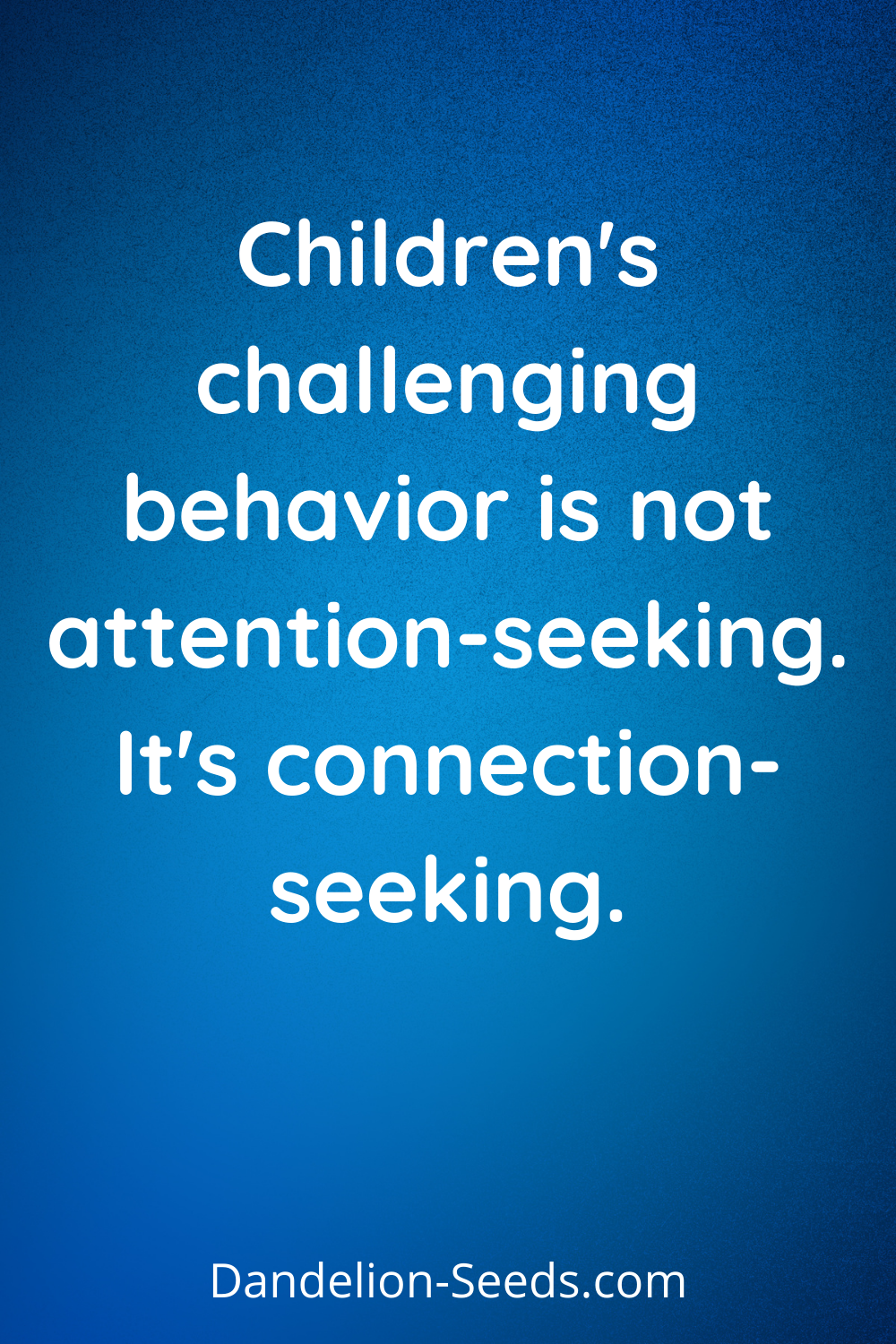
To be sure, it can be life changing for parents to learn about child development. Children aren't miniature adults; it'll take their brains until approximately age 25 to develop the reasoning and decision-making skills that most adults have (source). As such, they'll get plenty "wrong" until their brains are developmentally ready to meet adult-level expectations.
Understanding what's developmentally normal can be a path to incredible healing for both parent and child.
Some other religions do condone spanking, but many don't. The focus on Christianity in this article is because 78% of the U.S. population identifies as Christian (source).
If you've heard, "Spare the rod, spoil the child," odds are good that you (like many parents) attribute that quote to the Bible.
It didn't come from the Bible. It came from a 17th-century writer named Samuel Butler in a work called Hudibras. Interestingly and perhaps even scandalously, the quote has nothing to do with spanking a child. It's spoken by a man who wants his lover to engage in a certain type of sexual play.
For older children, roughly age 12 and above, it was recommended only in very specific circumstances as governed by the law at the time, not by Biblical teaching.
Samuel Martin (quite different from Samuel Butler) discusses spanking in Biblical times, and the specifics of how Christian parenting calls Christians to act towards their children in modern times. Watch his free expert interview.
References to "the rod" in the Bible are worth exploring in and of themselves. If we harken back to the days of shepherds using rods to guide their sheep, there's a critical distinction in how they use their rods. They did not use them to hit or harm their sheep. They used them to gently guide their sheep; to keep them from wandering off and getting hurt. That's an incredible paradigm shift.
As an example of where the rod is mentioned, in Proverbs 13:24, the Bible says, "Those who spare the rod of discipline hate their children. Those who love their children care enough to discipline them." Another word worth defining here is "discipline." It means to teach, not to punish. Even Jesus' disciples (same root word as discipline) were responsible for teaching. The "rod" (gentle guidance) was used to "discipline" (to teach).
They did not bring people to Jesus by being his "punishers" around the world. That certainly would not have been an effective approach!
Gentle guidance -- discipline -- is what modern-day parents, Christian or otherwise, would call healthy and loving boundaries. That's a far cry from spanking. Spanking and physical punishment of young children has no place in Biblical parenting, and the Bible itself confirms that. Christianity and spanking should be mutually exclusive.

Knowing that such a large percentage of the U.S. identifies as Christian, this section is written to encourage Christians. If you're not a Christian but know Christians who are using their faith to justify spanking, I invite you to have an open discussion with them and help change the narrative around corporal punishment.
The central theme of the Bible, and particularly of the New Testament, is forgiveness through Jesus. In fact, modeling Christ's loving compassion and forgiveness is literally the perfect model to follow for parenting.
If you will, look away from the "Christians" causing pain in any form, and towards those who are living gently and lovingly, as Jesus did.

Some verses to study and reflect on for parenting include these, among others:
If more Christians truly did model Christ's unconditional love, forgiveness, and compassion, perhaps fewer would stray from the church. If this was your reasoning for spanking, please know that if it fits within your belief system, forgiveness awaits.
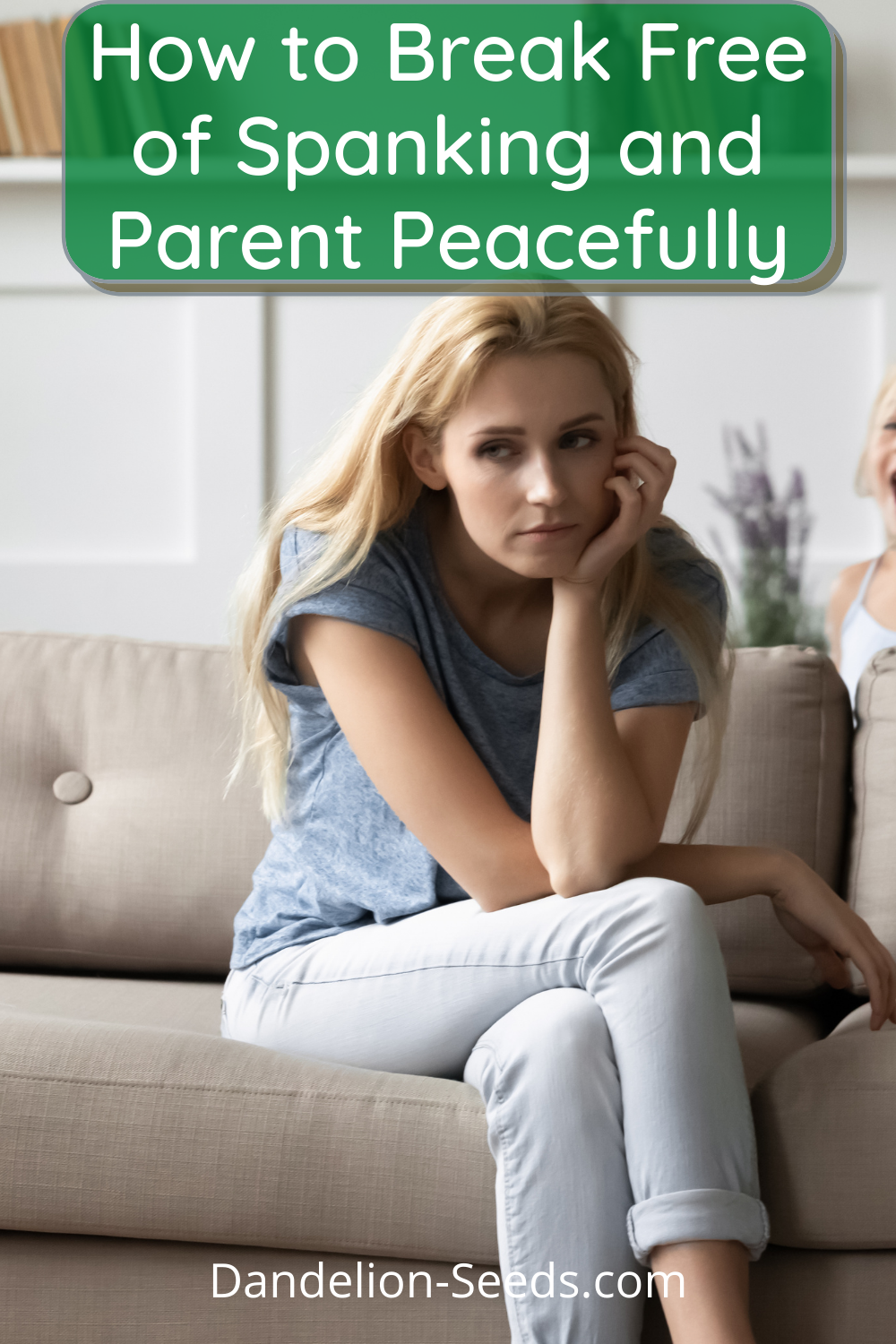
A growing body of research is showing us that spanking is an ineffective way to address behavior problems, both short-term and long-term. Furthermore, perhaps surprisingly to some, spanking may have some of the same outcomes as more severe forms of child abuse. A child's nervous system simply does not have a way to differentiate between spanking and other forms of violence. What kids know is that their trusted adult is hurting them.
According to a recent study by Harvard University,
"...corporal punishment has been linked to the development of mental health issues, anxiety, depression, behavioral problems, and substance use disorders." (source)
Further, the American Academy of Pediatrics states this about spanking:
"The Academy released a revised policy statement today that reiterates its opposition to corporal punishment, citing new evidence linking this form of discipline to an increased risk of negative behavioral, cognitive, psychosocial and emotional outcomes for children. The policy also addresses the harm associated with verbal punishment, such as shaming and humiliation. The AAP recommends that parents do not spank, hit, slap, threaten, insult, humiliate or shame to discipline their children. Research has shown that striking children, yelling at them or shaming can elevate stress hormones and lead to changes in the brain’s architecture. Harsh verbal abuse also is linked to mental health problems in preteens and adolescents." (source)
Perhaps of particular note about spanking is that it literally stunts some of the child's brain growth and can result in a lower IQ. Specifically, the part of the brain that is often damaged by corporal punishment is the very part that helps the child learn empathy for others (source). This very much plays into the vicious cycle of people who've been spanked as children continuing to rely on spanking for their own children. Lower empathy "grows" lower empathy.
If there's any encouraging news, it's that it's never too late to learn and increase empathy (source). The tricky part is that to do it, the adult has to very consciously and actively work on it. New neural pathways can grow to help the adult behave differently with their child. After enough practice, the new patterns can become habit (source). It won't happen on its own, however. The adult needs to work on it.
Additionally,
"...Evidence that spanking and adverse childhood experiences, or ACEs—which include measures of physical and emotional abuse, neglect, intimate partner violence, parental mental health problems, parental substance use, parental incarceration and parental death—have statistically indistinguishable effects on externalizing behavior problems in early childhood" (source)
Finally,
"In the meta-analysis, researchers Elizabeth Gershoff and Andrew Grogan-Kaylor of the University of Texas at Austin and the University of Michigan, respectively, evaluated 75 published studies on the relation between spanking by parents and various behavioral, emotional, cognitive and physical outcomes among their kids. They found that spanking was associated with 13 out of a total of 17 negative outcomes they assessed, including increased aggression, behavioral and mental health problems, and reduced cognitive ability and self-esteem." (source)
Spanking is currently still legal in every one of the United States, including in many schools. Most of the rest of the world has banned it, however, in the spirit of promoting gentler discipline methods. In fact, this map was updated in 2009 -- more than a decade ago. Spanking is even less tolerated now than it was then, with 59 countries now forbidding it by law. Japan is the most recent country to banish it, as of 2020 (source).
Perhaps the most important point to consider is that -- true, corporal punishment does inflict enough pain on a child that it may deter their behavior. However, nothing about spanking tells the child what they should do; how they should behave. Indeed, the parent might tell the child what to do, but living what to do is much more impactful.
The core of discipline is, indeed, teaching. What if we redirected the energy parents spend on spanking into gently guiding their children; teaching them how to thrive, connect, and collaborate peacefully with others? What if we model how to be gentle even amidst conflict? What if we show kids how to act towards others because they've seen us modeling it for them -- and they know what it feels like to receive their benevolent teaching?
Finally, what if we gave ourselves permission to break free from the patterns that no longer serve us?
Healing awaits.
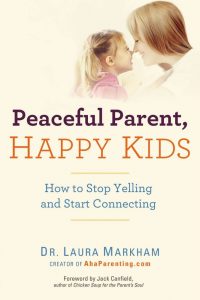
Additional resources can be found on the pinned post on Dandelion Seeds Positive Parenting's Facebook page.
